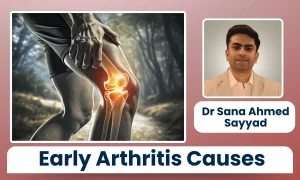Acne is a skin disorder, most frequently seen among adolescents but also present itself to adults at any point during their life cycle. Acne occurs when oil and dead skin clog pores, leading to lesions known as pimples forming within these clogged follicles.
Hormonal fluctuations, stress levels, diet, skin and beauty products and certain medications all can play a part in adult acne breakouts. Read on to gain more knowledge about this condition and its treatment methods.
Hormonal Changes
Acne is commonly perceived to be a teenage problem; however, it can actually peak twice in your adulthood: once in your 20s and then again in your 30s. Both episodes are caused by hormonal fluctuations causing oil production fluctuations to fluctuate, pores becoming blocked with sticky cells called keratin, an overgrowth of bacteria leading to inflammation and redness within pores.
Women may experience increased sebum production during ovulation, pregnancy and menstruation; this increase can cause sebum levels to spike and lead to an outbreak of acne symptoms including papules and pustules as well as deep, painful cysts or nodules.
Creams containing benzoyl peroxide or salicylic acid may help unclog hair follicles; if that fails, your doctor can prescribe stronger creams and medications such as spironolactone or isotretinoin which have proven successful at treating severe hormonal acne.
Stress
Stress can trigger biological responses that increase oil production, leading to blocked pores. Furthermore, stress may encourage the overgrowth and inflammation that causes acne bumps – symptoms we all recognize today as acne.
Acne is a skin condition characterized by red or swollen bumps, oily skin and the development of dark spots called post-inflammatory hyperpigmentation (PIH). While most commonly seen among those with darker skin tones, PIH can affect anyone.
Adult acne typically appears on the chin, jawline, nose and cheeks due to having more oil glands and hair follicles than any other part of the body. It may also surface on chest, back and shoulders but more commonly affects women than men during hormonal fluctuations like pregnancy and menstruation. Stress can make acne worse for some individuals so seeing a dermatologist for an effective acne treatment as well as using stress management methods like meditation may be recommended in order to control breakouts and minimize their impact.
Diet
Changes to diet typically aren’t the cause of adult acne; however, certain foods may make symptoms worse. A high-sugar diet appears to increase risk of breakouts while dairy products often aggravate it for some individuals.
Acne is often caused by oily skin becoming clogged with dead cells and bacteria that inflame and create pimples, leading to inflammation and subsequent pimples. Hormones, family history and health conditions all play a part in acne development – it’s common for women in their 30s, 40s and 50s to first experience adult-onset acne (also referred to as adult acne). With proper treatments such as benzoyl peroxide and dapsone to control excess oil production and kill bacteria while retinoids (vitamin A derivatives) can break open blackheads and whiteheads while clearing pores – however a dermatologist will recommend which medicines would best treat your specific case of adult acne.
Environment
Acne often forms when exposed to inflammatory elements like pollution, bacteria or makeup/beauty products that irritate the skin; certain medications – specifically hormonal contraceptives, antidepressants, thiazides and halogens – can also aggravate acne outbreaks; while in rare instances it could even be the result of undiagnosed medical conditions like polycystic ovary syndrome in women.
People with sensitive skin should avoid cosmetics that do not bear labels such as “oil-free”, “non-comedogenic” and “non-acnegenic”. Certain foods can trigger breakouts in adults with sensitive skin; particularly dairy allergies.
Adults experiencing persistent acne should visit a dermatologist to identify its source and potential treatments. A dermatologist can suggest an acne skincare routine and may offer other therapies to reduce breakouts. Isotretinoin may offer long-term remission for severe acne while managing diet and stress effectively can make a big difference for mild-moderate outbreaks.







More Stories
Acne Management for Remote Workers: How Your Home Environment Is Your Skin’s New Boss
Acne-Safe Makeup and Skincare for Gender-Affirming Hormone Therapy
Adapting Acne Routines for Extreme Climates: Desert Dryness vs. Tropical Humidity